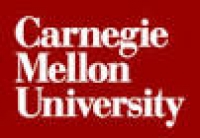






Economics is a social science that investigates markets, governments and other resource allocation mechanisms with the goal of understanding how they work, what they do well, why they sometime fail and how to make them better. There is no shortage of important questions that economists study: Why did we have a financial crisis? What can be done to repair the damage? How can we prevent such crises in the future? Why have the returns to education and skill increased so dramatically in recent decades while earnings of the unskilled have fallen? Do school choice, vouchers and other incentive mechanisms hold promise for improving education systems? What does the evidence tell us about the effects of minimum wage policies? Why have some countries experienced rapid economic development? What can be done to foster development of others that continue to languish? How are new technologies affecting economic development and economic opportunities? Can we improve design of electronic markets to take advantage of the vast opportunities for trade and exchange afforded by the internet? Can the techniques of cost-benefit analysis provide meaningful estimates of the cost of climate change? What are the tradeoffs in use of regulations, marketable permits, taxes and other mechanisms to control pollution? In short, economists identify, model and analyze problems to develop solutions for the challenges confronting society. In addition to advancing understanding of these issues, economists are also active participants in implementing changes. Economists help businesses and other organizations make better decisions by evaluating alternative policies with an understanding of markets and strategic interactions, and by sophisticated data analysis. Economists also are active in the design of incentive and regulatory policies to improve government policies. Increasingly, economists are taking advantage of new technologies to design new markets and exchange mechanisms.
| Number | Duration |
|---|---|
| 4 | year |
Carnegie Mellon’s Career and Professional Development Center (CPDC) has a team that serves the Tepper School undergraduate population — students who are majoring in economics and in business. While some students enter Carnegie Mellon knowing exactly what they want to do in life, most do not. One of our goals is to help our students understand the vast array of career possibilities. Our program partners with the CPDC's Tepper School team, who orchestrate the career exploration, experiential learning and career networking needs of students. Through one-on-one conversations and workshops, as well as connecting students with alumni, the CPDC's Tepper School team offers comprehensive career development services. Freshmen students through alumni can schedule an appointment to meet with a career consultant. Students have access to many career-related events, including an annual professional development and workshop calendar, company information sessions, visit to employers, job fairs such as the Business Opportunities Conference and Wednesday Night Insights speaker series, which feature senior alumni and recruiters who visit campus and share corporate and industry overviews with our students.